2018-2019 Changing Climate, Changing Times
All Sidore lectures are at the Silver Center for the Arts, in Smith Recital Hall. Lectures are free and open to the public, but reservations are recommended.
For reservations or to arrange special accommodations, call (603) 535-ARTS.
Thursday, September 13, 2018, 7 p.m.
Changing the Conversation: Improving Public Discourse on Climate Change
Social discourse is important for people to make sense of and develop solutions to social threats such as that posed by anthropogenic climate change. Yet, most Americans tend to avoid talking about climate change with people they know. This presentation discusses recent research on why people are hesitant to talk about climate change and how these barriers to discussion can be overcome. I will include an overview of findings from a national-scale, five-year effort to change societal discourse on climate change through improving climate change communication at informal science learning centers (such as aquariums and zoos), which are places where adults can remain engaged with scientific topics.
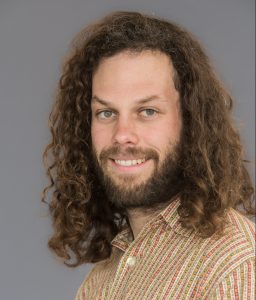
Tuesday, October 16, 2018, 7 p.m.
Pedagogy and the “Point of No Return”:
The Difficult Knowledge of Climate Change
The realities of our changing climate press upon our capacity to internalize and actualize knowledge. Problems of imagination, political will, and civic action are exposed through the continued deferral of recognizing and confronting these realities. As we reach and surpass what climate scientists call the “point of no return”, climate change exposes a multitude of challenges for teaching and learning. In this talk, Jim Garrett explores the idea of difficult knowledge in relation to the challenges of learning about climate change and the ways in which those challenges impede our confronting an imminently precarious future.
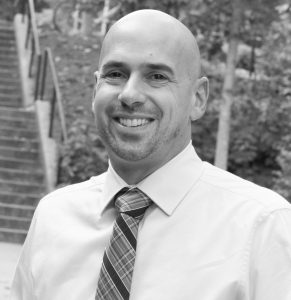
Tuesday, December 4, 2018, 7 p.m.
Looking Back, Peering Ahead—From the Middle of Colliding, Imperceptible Events: Climate Change and Mass Extinction
The linkages between climate change and species extinctions seem obvious; yet climate change in the Anthropocene may not be what we think it is, and the relevant changes may be imperceptible to us. Attributing past and present shifts in flora and fauna to climate change is problematic, because its effects are predominantly indirect. At present, a 6th great extinction event is likely in progress, but it is very difficult to quantify due to the constraints of documenting extinction, and even more difficult to attribute extinctions to climate change. The path to extinction is typically long and begins with declining abundance and spatial distribution. Evidence of such change is pervasive. Whether species can adapt and whether communities will be resilient to climate change is largely unknown. Dr. Rodenhouse will explore how the concepts of climate and extinction shape and constrain how we relate climate change to mass extinction, and he will use local data to address whether climate change is driving some species along the path to extinction.
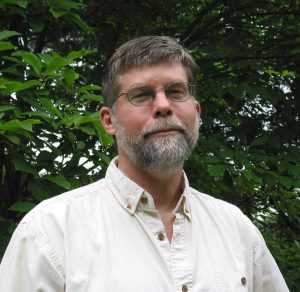
Dr. Nicholas L. Rodenhouse is professor emeritus of Wellesley College, Wellesley, MA, where he taught ecology and conservation biology from 1988 – 2017. His primary research focus is on how weather and climate affect forest songbirds; however, his research activities range more broadly than this. He became interested in climate change in 1987 when doing a postdoc in sustainable agriculture at Miami University, Ohio and contributed to the first US EPA sponsored assessment of the potential effects of climate change on Midwestern agriculture. He has been conducting research on climate change since then, including work with the Union of Concerned Scientists on the New England Climate Impact Assessment. He re-joined the avian ecology research group at the Hubbard Brook Experimental Forest as a principal investigator in 1996 with a specific focus on the processes and drivers of population regulation. His research has been funded by the National Science Foundation, the U.S. Forest Service, and Wellesley College.
Tuesday, February 19, 2019, 7 p.m.
From Mountains to Sea: How Climate Change Impacts New Hampshire’s Wildlife
Warming temperatures, increasing precipitation, and decreasing snow cover impact New Hampshire’s diverse natural habitats and the species of wildlife that inhabit them. Changes in our northern forests affect distributions of birds and mammals, including iconic species such as moose, lynx, and loon. Warming ocean waters bring with them a shift from cold-water to warmer-water adapted marine life, with foreseeable changes in commercially important fisheries. Rising sea levels affect our coastal ecosystems, including birds that nest in sand dunes and salt marshes. This talk will consider some of these climate change impacts, features of ecosystems that are more resilient, and human actions that may facilitate species’ adaptations.

Tuesday, March 19, 2019, 7 p.m.
Climate Impacts on Agriculture
Rising temperatures, lengthening growing seasons, increasing intensity of rainfall, shifting rainfall patterns, and increasing humidity are all part of the changing climate. Agriculture is dependent upon temperature patterns suited to a specific crop and a distribution of rainfall that allows the crop to grow without stress during the year. Variations in production for crops are directly related to temperature extremes during the pollination period and during reproductive development and the amount of precipitation during the reproductive period. When we evaluate yields gaps as the difference between what is attainable and actual yields, we have found that the changing climate patterns will significantly impact yields of agricultural crops beyond 2050. These climate impacts will be exaggerated by the fact that the ability of the soil to capture and hold water is decreasing as we continue to degrade our soils. To build climate resilient agricultural systems will require that we understand the dynamics among the climate, soils, and plants. This will require an innovative approach to this problem for all of our agricultural systems in the United States and the world. However, this is the path to food security and human wellbeing.
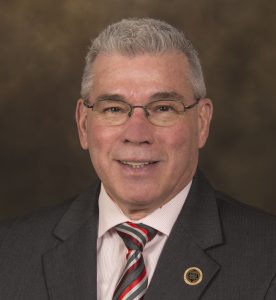
Tuesday, April 9, 2019, 7 p.m.
Before the Flood: A 2016 Documentary Film by Leonardo DiCaprio
A showing of the 2016 Leonardo DiCaprio documentary film on climate change, Before the Flood, on the PSU campus will be held on Tuesday, April 9, 2019, at 7:00 pm in Room 144 of the Boyd Science Center. The showing is free and open to the public. Co-sponsors of this screening are the PSU Office of Environmental Sustainability and Common Ground, PSU’s environmental and social justice student organization.
From Academy Award-winning filmmaker Fisher Stevens and Academy Award-winning actor,
environmental activist, and U.N. Messenger of Peace, Leonardo DiCaprio, Before the Flood presents a
riveting account of the dramatic changes occurring around the world due to climate change, as well as the
actions we as individuals and as a society can take to prevent catastrophic disruption of life on our planet.
DiCaprio travels around the world to interview a number of world leaders and experts about climate
change, including former President Obama, former President Bill Clinton, former Secretary of State John
Kerry, former U.N. Secretary-General Ban Ki-moon, Pope Francis, and Elon Musk, as well as top NASA
researchers, forest conservationists, scientists, community leaders, and other environmental activists.
Friday, April 19, 2019, 7 p.m.
From Pikas to People Power: A Multifaceted Look at Climate Action
Rapid, localized shifts in energy sourcing produce social justice wins for some, and challenges for others. Join Laura Getts as she discusses how her time at P.S.U prepared her for a career in climate research and activism and how her work as a Young Leader in Climate Change for the National Park Service, and as Energy Coordinator for Pueblo County, Colorado addresses climate change challenges for both local and federal government entities.
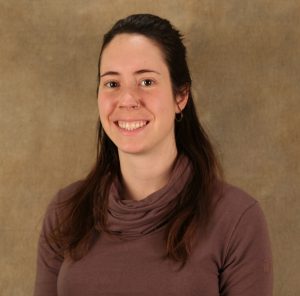
Wednesday, April 24, 2019, 6:30 p.m.
Paris to Pittsburgh: A 2018 Documentary
A showing of the Paris to Pittsburgh will be shown on April 24, 2019, at 6:30 pm in Hyde Hall Room 120 on the PSU campus. Paris to Pittsburgh is a 2018 documentary film about climate change. The film is narrated by Rachel Brosnahan, and produced by Bloomberg Philanthropies and RadicalMedia. From coastal cities to America’s heartland, Paris to Pittsburgh celebrates how Americans are demanding and developing real solutions in the face of climate change. And as the weather grows more deadly and destructive, they aren’t waiting on Washington to act.
